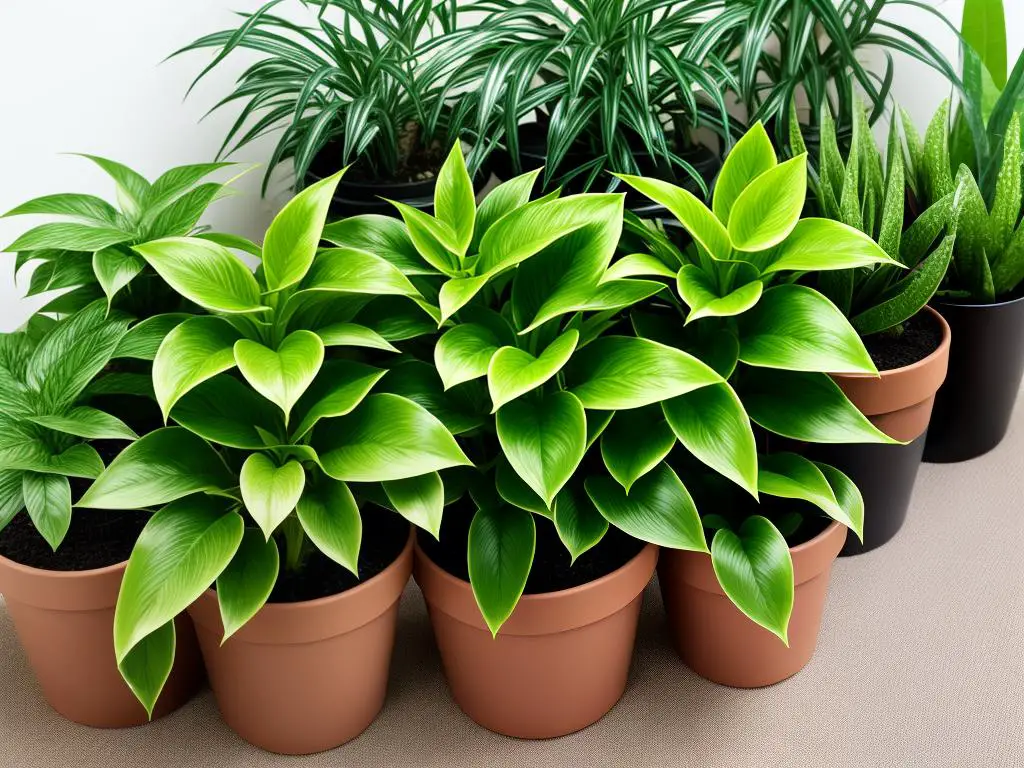Amidst the urban concrete jungles we inhabit today, the provision of some lush, verdant growth can represent not just a simple domestic adornment, but a fruitful path to improve mental wellness. The humble houseplant, observed through its dwelling in our living rooms, kitchens or workspaces, offers benefits beyond being merely visually pleasing. They play a crucial role in improving the quality of our lives by boosting our daily mood, reducing stress levels, and purifying our immediate atmosphere. This exploration uncovers the nuanced and meaningful correlation between houseplants and mental health, delves into the science that underpins their benefits and guides you to choose, care for and incorporate these green companions into your everyday existence.
Understanding the Connection between Houseplants and Mental Health
The Underlying Connection: Houseplants and Mental Health
In recent years, a surge of interest in houseplants has taken place. They have become much more than just decorative pieces: they’re now thought to be conducive to better mental health. The sight and care of our green companions in indoor spaces have been found to significantly enhance our emotional state, thus improving our overall well-being. This is a relatively new area of exploration that combines the fields of environmental psychology and horticulture therapy to shed light on how houseplants can bolster mental health.
A Breath of Fresh Air: Indoor Plants and Stress Reduction
One of the most treasured effects of houseplants is their ability to reduce stress levels. A study by the University of Technology, Sydney, found a staggering 37% decrease in tension and anxiety amongst employees when plants were introduced into their workspace. This may be attributed to the calming effect of their greenery, or the nurturing act of caring for another living thing, offering a welcome respite from the often overwhelming pace of modern life.
A Leafy Route to Happiness
Plants aren’t just aesthetically pleasing; they also contribute towards our sense of happiness. Moreover, they help to cultivate mindfulness. The act of tending to plants compels us to slow down, focus our attention, and engage with the world around us. In an age characterised by screens and relentless busyness, this encourages us to be present and can lead to increased levels of satisfaction and happiness.
The Growth of Focus and Productivity
Apart from stress reduction and increased happiness, houseplants have been found to improve focus and productivity. This is perhaps most striking in workspaces and educational settings. A study conducted by the Royal College of Agriculture in Cirencester found students demonstrated 70% greater attentiveness in classrooms containing plants. Similarly, research from NASA suggests that indoor plants can cleanse and purify air, improving brain function and thus leading to increased focus and productivity.
A Seed of Calm in Mental Health
The mental health benefits of houseplants should not be underestimated. Their potential to alleviate anxiety and depression is particularly notable. Horticultural therapy, which involves caring for plants and gardening, is increasingly being used as a therapeutic intervention for individuals battling mental health difficulties. The peaceful and meditative nature of the process can provide a soothing effect and a sense of accomplishment, improving their overall mental wellbeing.
In general, the advantages of houseplants are not limited to their aesthetic appeal. They not only incorporate natural elements and purify the air in our homes, but also provide significant benefits to our mental wellbeing. From reducing stress and enhancing mood, to boosting focus and productivity, these ever-present green friends seem to have a tangible effect on our emotional health. This exciting field of study is bound to expand further, highlighting how our health is profoundly intertwined with nature.
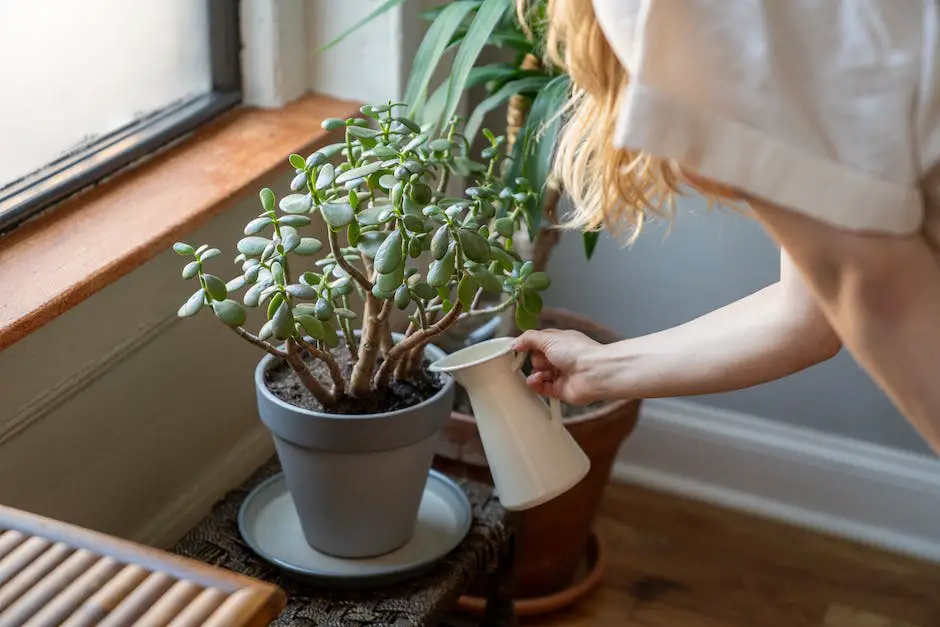
The Science behind Houseplants and Mental Health
The Intricacies of Houseplants and Mental Health
As urban living becomes more prevalent, many individuals feel increasingly alienated from the chaos and wonder of the natural world. While small gardens or green spaces might provide some comfort, these are often scarce or far removed from our daily lives. Nevertheless, within the concrete maze, the connection to nature doesn’t need to be forfeited. Houseplants, with their green leaves and soil’s scent, can reignite basic human ties to Mother Nature. But do houseplants merely serve as appealing décor? Not according to scientific research. Let’s delve into the captivating science behind how houseplants influence our mental health.
The Role of Houseplants in Mood and Cognition
Delving into psychology and horticulture, research has found strong evidence that houseplants contribute positively to our mood and cognition. The presence of plants in our living spaces, according to a study published in the Journal of Environmental Psychology, has significant benefits like reduced stress, enhanced mood, and increased creativity. Focused attention, the cognitive ability associated with concentration, has also been found to reap the benefits of having plants around, which provide respite from mentally-intensive tasks and mitigate mental fatigue.
Air Purification and its Impact on Mental Health
Apart from their psychological benefits, houseplants play a key role in improving indoor air quality. They act as natural air purifiers by absorbing toxins and releasing oxygen. Some plants, such as the peace lily and snake plant, are better at this than others. By reducing the amount of airborne pollutants, these plants can help counteract the ‘sick building syndrome.’ This scenario, characterised by headaches and dizziness due to staying in air-conditioned or poorly ventilated areas for extended periods, can negatively affect our mood and mental clarity. Thus, through purifying the air, houseplants can indirectly contribute to our mental health.
Houseplants and the Theory of Biophilia
Last
ly
, the human need for greenery connects to an interesting psychological hypothesis – Biophilia. Proposed by the American biologist, E.O Wilson, Biophilia suggests an innate human tendency to seek connections with nature.From an evolutionary perspective, this makes sense. Human beings have lived among nature for thousands of years, significantly longer than in the urban landscapes we find ourselves in today. This embedded ancestral memory pushes us to seek comfort and mental stimulation in biophilic elements such as plants.
Incorporating houseplants in our living spaces could, therefore, be seen as a way to satisfy this biophilic craving. By doing so, we stimulate a deep-seated aspect of our psyche that improves our mood, reduces stress, and boosts our cognitive capabilities.
To summarise, the psychological benefits of houseplants are not solely derived from their aesthetic appeal, but rather a complex mix of elements.
From elevating mood and cognition, improving indoor air quality and fulfilling our intrinsic connection to nature, houseplants serve a crucial role in enhancing our mental health. Accordingly, maintaining houseplants isn’t just an engaging past-time or decorative trend, it’s a scientifically supported approach to preserving and enhancing one’s mental well-being.
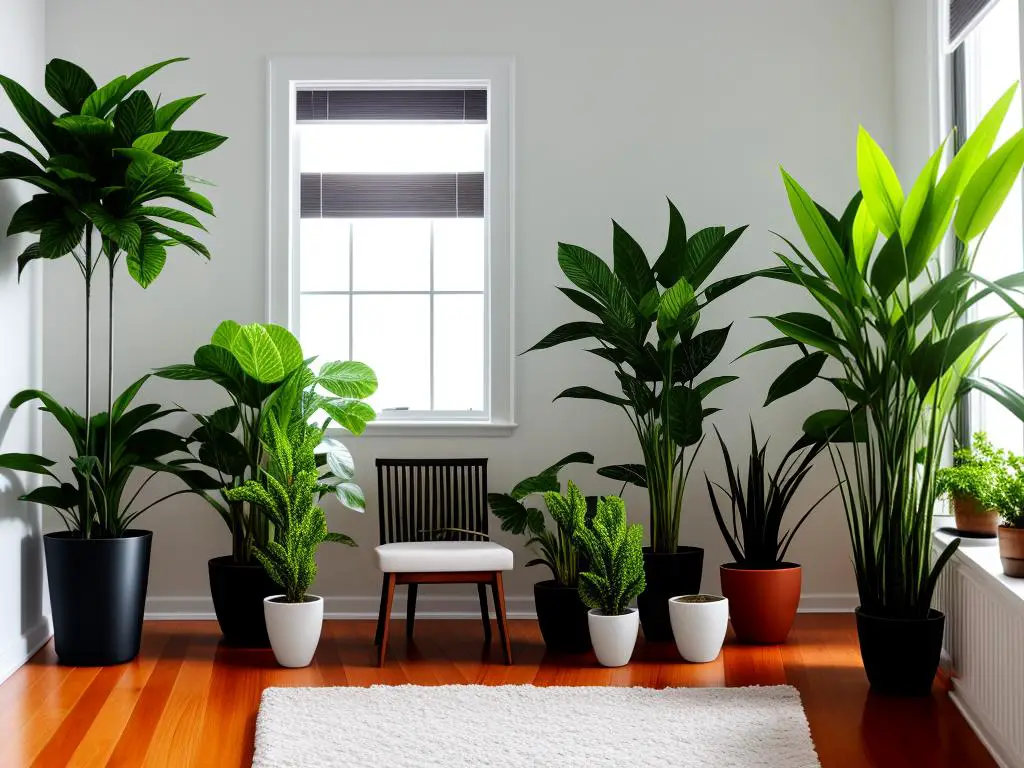
Choosing the Right Houseplants for Your Space
Assessing Your Living Space Requirements
The nature of your living space is a critical factor in determining which houseplants are most suitable for it. A vast array of houseplants each have unique preferences such as whether they thrive on a well-lit windowsill, can manage in low light conditions, or require a specific level of humidity. This means that based upon your living space, be it a compact city flat, spacious suburban home or countryside dwelling, the potential types of botanical decor you can host diverge.
Additionally, a vital aspect to consider during plant selection is the quantity of light your residence receives. Locations with a good supply of natural light might find that sun-loving plants such as Aralia, Croton or Snake Plant flourish immensely. Conversely, for those residences receiving less natural light, shade-loving plants including Pothos, ZZ plant or Peace Lily might be a more practical choice.
Understanding the Types of Houseplants and Their Benefits
Houseplants come in all shapes, sizes, and preferences. Here is a brief rundown of different types of houseplants in relation to their potential benefits to mental health.
- Low-Light Plants: These plants like English Ivy, Spider Plant and Pothos are useful for individuals seeking to purify their indoor air, as these types of plants can filter out common volatile organic compounds (VOCs). Moreover, the practice of nurturing a living entity can provide a great sense of accomplishment that can help to alleviate symptoms of anxiety and depression.
- Flowering Plants: Flowering plants like Orchids, African Violets and Peace Lilies can not only brighten up any room, but they can also have a profound effect on mood. The presence of colourful indoor plants can stimulate feelings of happiness and creativity, which makes them an excellent choice for those looking to add a dash of positivity to their homes.
- Hardy Green Plants: Plants like Snake Plant, ZZ Plant or Ferns require minimal care, making them ideal for people with busy lifestyles. These plants also increase indoor humidity levels which can help alleviate symptoms of respiratory conditions and improve overall wellbeing.
Personal Preferences and Plants
Plant selection isn’t just about the plant’s requirements. Your preferences, style, and lifestyle all come into play as well. From the vibrant blooms of Geraniums to the elegant fronds of Ferns, the plant world offers a wide variety to cater to individual aesthetics and tastes.
For instance, if you lean towards minimalism, you might find Succulents appealing with their unique, sculptural forms. If you love a lush appearance, a Boston Fern could be your ideal plant. If having a calm-inducing plant is what you aim for, an Aloe Vera or Snake Plant would work wonders as they have been linked to decreased anxiety, enhanced mood and improved sleep.
To conclude, houseplants make a significant contribution to our mental wellbeing, not to mention the aesthetic enhancement they provide for our living spaces. The key is to select the right species of plant – those which are not only suited to the specific conditions of your home but will also resonate with your personal style and mental health requirements. Therefore, evaluate the space you have available, consider your levels of natural light, align these with your preferences, and start to experience the joy of being a ‘plant parent’. Remember, any thumb can develop into a ‘green thumb’, provided the correct plant selection and care are in place.
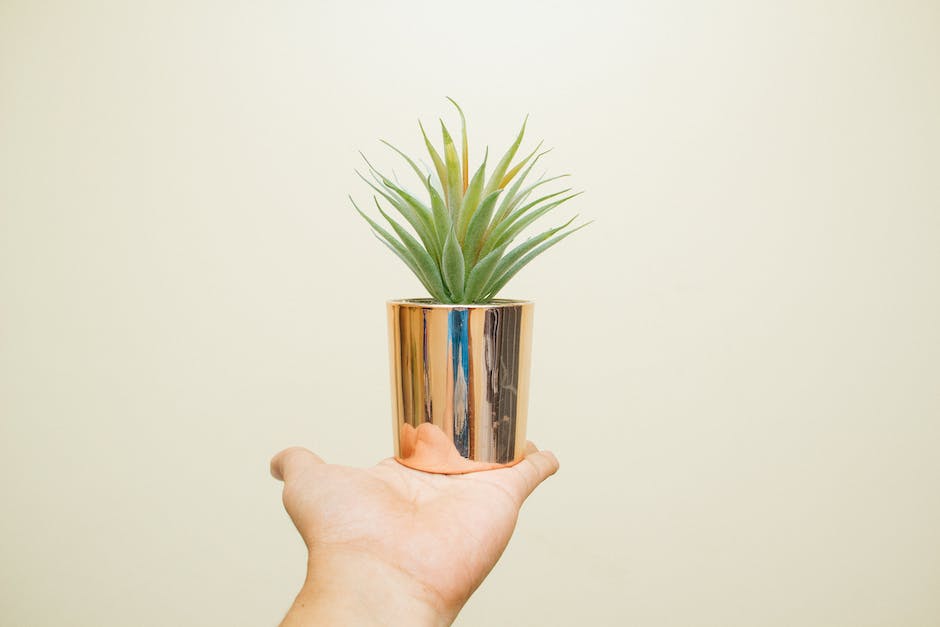
Caring for Houseplants: A Therapeutic Exercise
Nurturing Houseplants and its Therapeutic Advantages
The process of tending to and caring for houseplants can yield enormous therapeutic benefits. The greenery becomes a comforting presence and a source of pleasure for many, serving as a welcome escape from everyday life stresses. Scientific studies have supported this claim, showing that indoor gardening activities can decrease stress levels, elevate mood, and foster improved creativity and concentration.
Engaging in the routine tasks of watering, pruning, and re-potting plants provides a soothing, nearly meditative experience. These rhythmic daily responsibilities around plant care help centre the mind, quieting the incessant flow of thoughts and worries. As such, the care of houseplants serves as an excellent exercise in mindfulness and focus.
Cultivating Mindfulness with Houseplants
Mindfulness refers to the psychological process of purposefully bringing one’s full attention to experiences occurring in the present moment without judgement. In the context of tending to houseplants, mindfulness tends to manifest as a deep connection with the plant on a sensory level, from experiencing the feel of its leaves to the scent of its soil. Observing a plant’s growth, noting changes in its foliage or recognizing signs of its needs all feed into this practice of mindfulness.
Engaging with plants on this level slows the pace of life down and brings tranquility to our hectic routines. It serves as a humble reminder that life is fragile yet resilient, slow but never stagnant.
Fostering a Sense of Responsibility and Accomplishment
Taking care of houseplants also fosters a deep-rooted sense of responsibility. Each plant has its individual needs when it comes to light, water, and nutrition. Getting to know these needs, and successfully meeting them, encourages a sense of ownership and commitment. For those with mental health challenges, this responsibility can provide routine, purpose, and ultimately, a sense of accomplishment.
The satisfaction derived from seeing a plant flourish due to attentive care can spur feelings of self-worth, competence, and accomplishment. It has been proven to be restorative and can help bolster one’s confidence and self-esteem.
Houseplants and Enhanced Air Quality
Aside from the psychological benefits, tending to houseplants provides clear health advantages by enhancing the quality of air indoors. Many popular indoor plants, such as spider plants or snake plants, are capable of filtering common pollutants from the air, therefore, cultivating a cleaner, healthier environment within one’s home.
Together, these benefits make the act of caring for houseplants a therapeutic endeavour in its own right, promoting mental well-being, nurturing mindfulness, and creating a sense of responsibility and achievement. Regardless of whether you’re an experienced gardener or a novice, the world of houseplants is undoubtedly worth delving into for the well-being of your mental health.
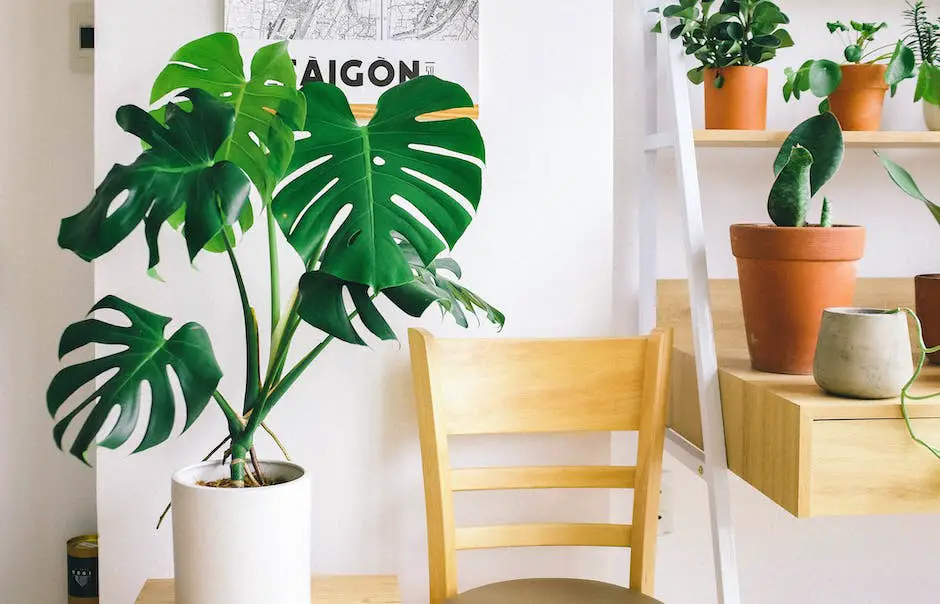
Incorporating Houseplants into Your Daily Routine
The Potency of Houseplants: Positive Impact on Mental Health
Houseplants contribute far more than just a visual enhancement to one’s domicile. These living organisms engage with your body, mind, and dwelling in ways that boost your quality of life, particularly by elevating your mental health. Numerous scientific research demonstrate the potency of nature in alleviating stress, reducing anxiety and fighting off depression.
Finding the Right Spot for Your Houseplants
The key to incorporating houseplants into your daily routine begins with finding the right spot for them within your living environment. It’s beneficial to place them in areas where you spend most of your time, such as the study, living room or even the kitchen. Having houseplants visible from your workspace or desk can boost your mood and productivity. It’s proven that greenery and plants have a calming and relaxing effect. Furthermore, plants in the bedroom can improve your sleep quality.
However, keep in mind each plant’s specific needs when it comes to light and temperature to ensure they’re healthy and thriving, which, in turn, will contribute to their mental health benefits.
Interaction with Houseplants: More Than Just Watering
Creating an interaction schedule can also benefit both you and your houseplants. Beyond regular watering and care, taking time to inspect your plants, remove dead leaves or simply touch their leaves can lead to a stronger connection with nature, which is known to boost mood and alleviate anxiety. It’s suggested that the best time for these interactions is in the morning, when the sunlight is still mellow and you’re setting yourself up for the day ahead.
Houseplants do respond positively to human interaction. Regularly touching and talking to your plants will not only make them grow better, but it will also add a comforting routine to your day, which can be particularly beneficial in times of stress or anxiety.
Appreciating Growth and Development: A Lesson in Mindfulness
One of the beauties of having houseplants is the opportunity to observe their growth and development over time. This process can instil a sense of achievement and satisfaction. It’s a lesson of patience and acceptance of slow progress, which is important for one’s mental strength and resilience.
The simple act of watching a new leaf slowly unfurl or a flower bloom can be incredibly therapeutic. It’s a timely reminder to slow down in our often fast-paced lives, fostering mindfulness and a grounding sense of belonging in the world.
The Power of Responsibility and Nurturing
Looking after houseplants also brings a sense of responsibility and nurturing; they depend on you for their survival. This can provide a sense of purpose and routine, which are crucial for maintaining mental health. The commitment to their care can bring structure to your day, while the action itself is repetitive and mindful, helping to keep your mind focused and calm.
In conclusion
Making houseplants part of your daily routine can greatly contribute to enhancing your mental health. The simple acts of caring, appreciating their growth, and significant placement in your living space enable you to connect with nature deeply and therefore reap the therapeutic benefits on your psyche.
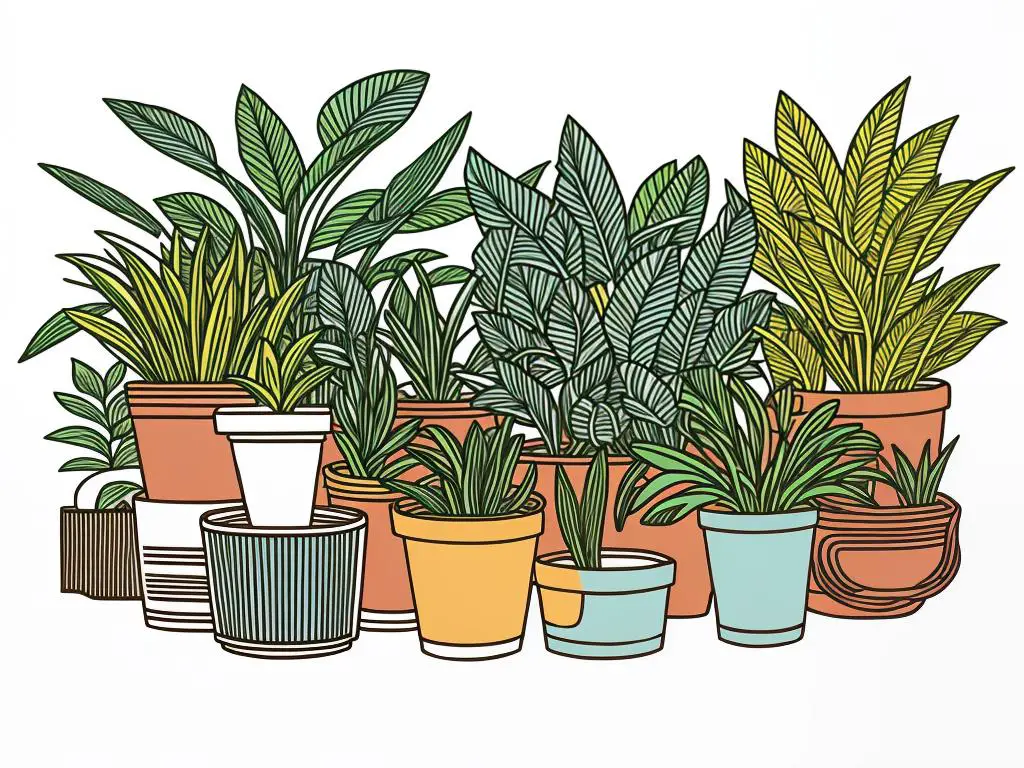
Embracing a life intertwined with houseplants is not merely about enhancing the aesthetics of our homes or workspaces. It is a journey that intertwines our human essence with the primal vivacity of nature in a way that nourishes our mental health. Houseplants do more than beautify our environments; they connect us to the inherent elements of our humanity and purify the air we breathe. They stimulate our minds and bring a sense of tranquillity, focus and productivity to our lives. So let us remember, when we cradle a seedling or nurture a plant through its life stages, we aren’t just cultivating greenery, but also sowing seeds of positivity, growth, and harmony in our own lives.
